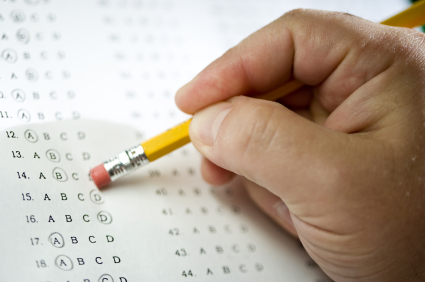Another cheating scandal, this one in Atlanta, Georgia, where 178 teachers and administrators have been accused of cheating to raise student scores on standardized tests. Despite numerous revelations of cheating in recent months (and accusations and suspicion in other high-profile districts), the public remains “shocked” and “appalled” each time a new scandal comes to light.
I’m in no way excusing those who cheat. Cheating is flat-out wrong. But I’m neither “shocked” not “appalled.” Did you know that ten states use test scores as the most important variable in teacher evaluation? Did you know that other states offer teachers bonuses of up to $25,000 if students do especially well on standardized tests? Did you know that principals can lose their job and entire schools can be shut down if test scores are not high enough?
Can anyone who is aware of these truths be “shocked” and “appalled” when desperate people engage in unethical and illegal behavior? That is the quintessential definition of naïve.

Maybe I’m a cynic (a consequence of closing in on age 60?), but it seems to me that we are observing predictable behavior. Offer people a sizable bonus during these difficult times and it’s not surprising that some will resort to cheating. Threaten people with the loss of a job and it’s not surprising that some will cheat. Public outcry and sanctions will do little to address the problem. As long as we maintain high-stakes testing, expect to keep hearing stories like the one that just broke in Atlanta. Some may be less dramatic. We may even get a few that are even more dramatic. Regardless, the problem will persist until those in power change how we evaluate schools and teachers.
